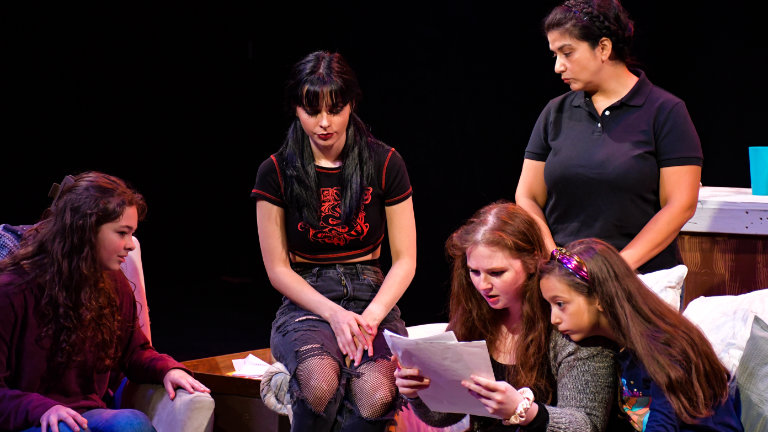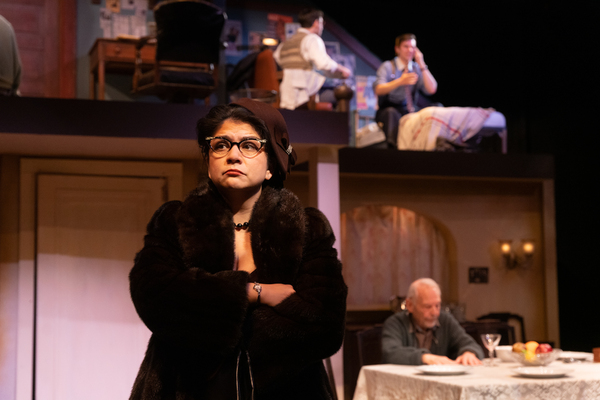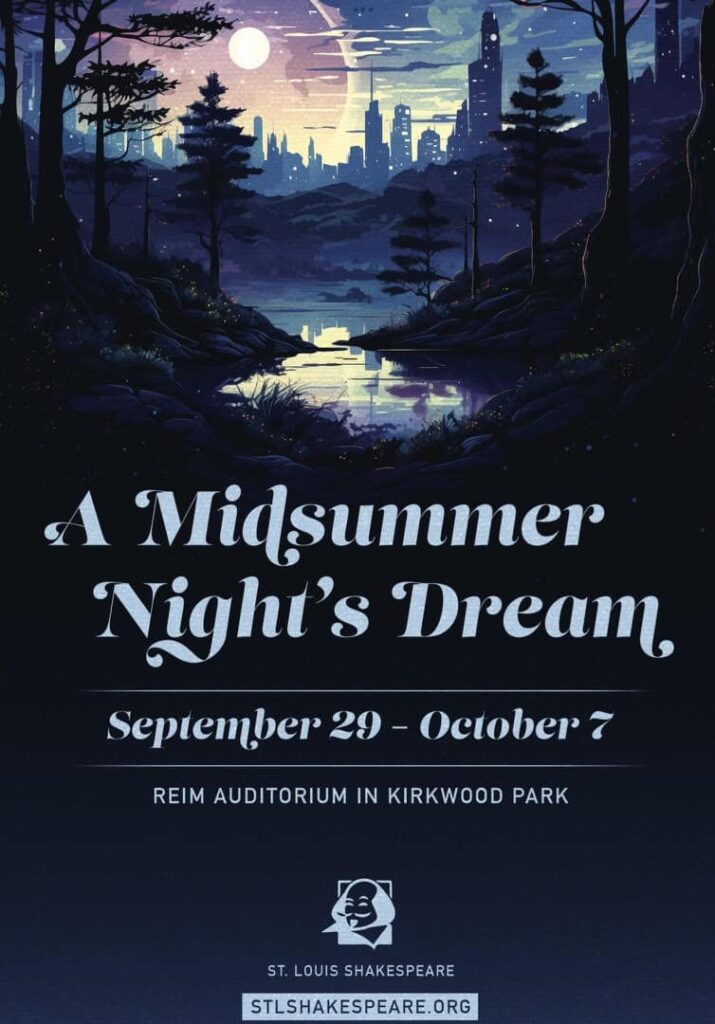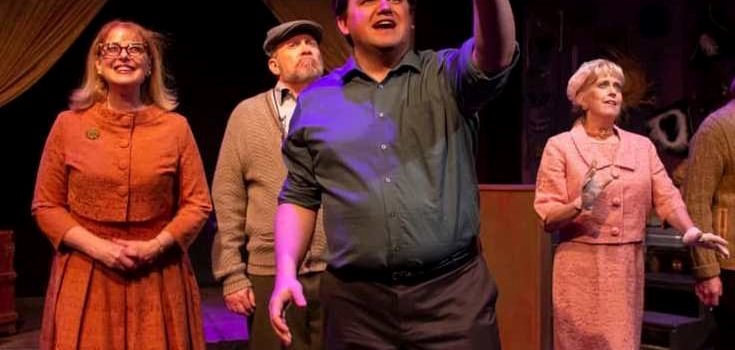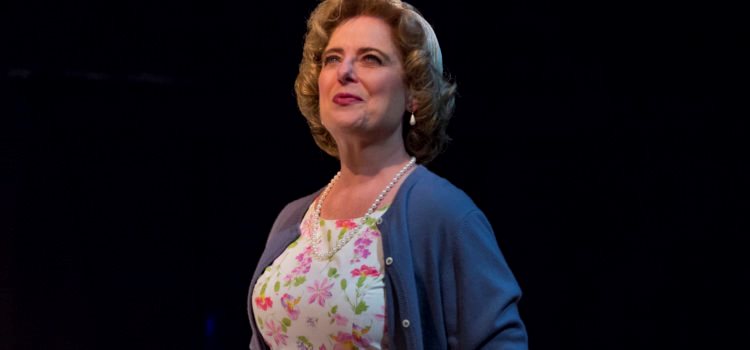By Lynn Venhaus
Epic in scope and intimate in execution, Tesseract Theatre Company’s “The Inheritance” Part I is a monumental achievement that leaves one exhilarated and eagerly anticipating Part 2.
A rich tapestry of yearning, desire, melancholy, fear, joy, hope, community, and love is written vividly and perceptively by Matthew Lopez.
This Tony and Olivier-Award winning play is surprising in its wit and depth of feeling as we’re hit with this tsunami of talent meeting moment after moment.
This magnum opus on what it’s like to be gay in America is boldly directed by Stephen Peirick and seamlessly acted by a passionate ensemble that radiates charm and conviviality.
It takes place decades after the AIDS epidemic while three generations of gay men grapple with those past tragedies, and the legacies of shame, secrets, and loss, especially at a time when hard-fought rights are available, yet shifting political tides make them vulnerable.
What does it mean for the future? Intertwining a sprawling cast of 13, Lopez examines healing, survival, what home means and a class divide, inspired by E.M. Forster’s 1910 novel “Howards End.”
Because Forster examined class differences and hypocrisy in British society in the early 20th century, so does Lopez project his characters in the early 21st century.
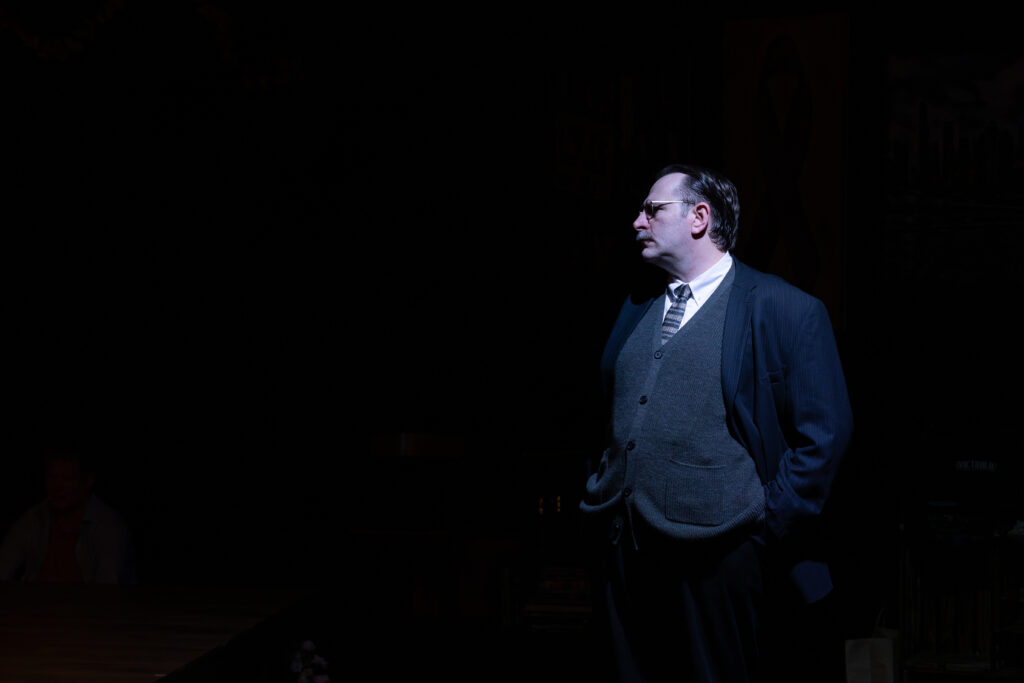
Moments of grace and laughter abound as the knotty entanglements of life unfold. Lopez tackles the complexities we all face, connecting characters, ambitions and eras in a swirling, dizzying, fantastical way. It is specific to the LGBTQIA+ experience, but allies will be able to relate.
Where to begin with this marathon of a show that defies conventions and embraces universal truths?
Employing an uncommon structure, Lopez nimbly name drops in a dishy soap-opera way, using familiar – and amusing — pop culture references, while being profound about generational experiences with textured, novelist flourishes.
The production’s 7-hour runtime may be daunting, but do not be intimidated by its two parts. Yes, it is a commitment, but the rewards are vast, especially when everyone involved has given their all, and it shows.
Part 1, which is from Summer 2015 to Spring 2017, is 3 hours and 10 minutes. The first act is 75 minutes, followed by a 15-minute intermission, then the second act is 55 minutes, followed by a 10-minute intermission, and final piece of Part 1 is 52 minutes.
Part 2, which is set from Spring 2017 to Summer 2018, is 3 hours and 15 minutes with one intermission and a brief pause. I look forward to returning to find out what’s happening with these people.
Keeping the momentum was obviously Peirick’s goal, and it is riveting from start to finish, never sagging.
However, the way the multi-layered show is structured is an investment, as it has many moving parts and themes that intersect. Sure, it’s imperfect, but hello…
It takes a broad canvas and narrows it down, starting in a classroom, where out-and proud gay men in their 30s are instructed by E.M. Forster, known as “Morgan,” to shape their own stories.
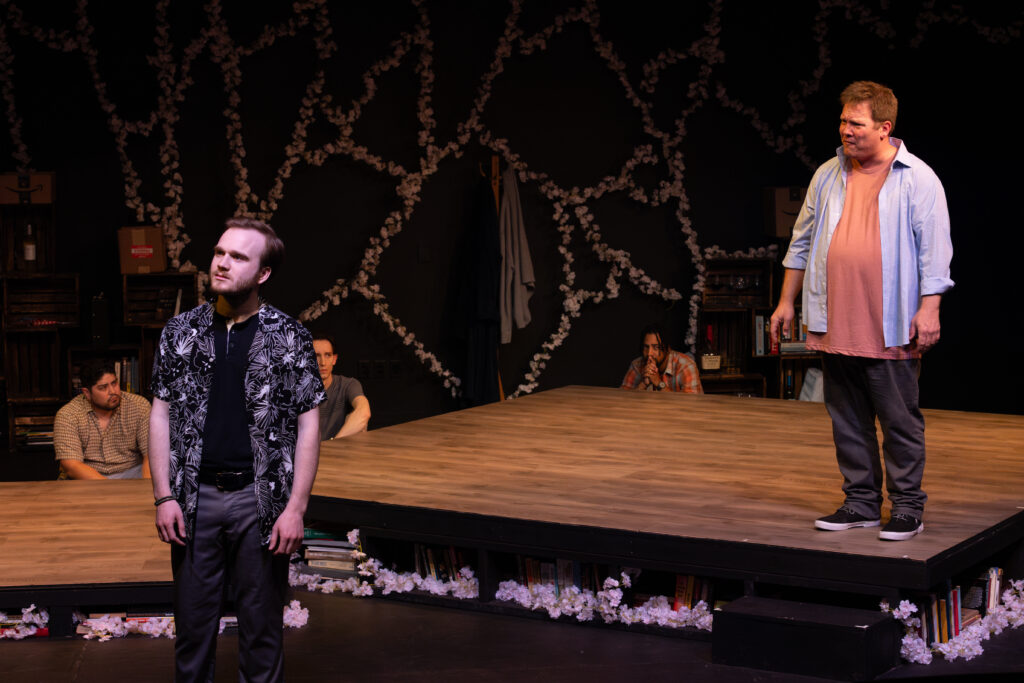
Yes, the legendary author Edward Morgan Forster, who lived from 1879 to 1970, and besides “Howards End,” wrote the novels “A Room with a View” and “A Passage to India,” all later adapted into Merchant and Ivory films.
This is a conceit that is a master stroke, and not far-fetched. While the contemporary characters here chastise Morgan for hiding his sexuality publicly as a gay man – homosexual acts in private weren’t decriminalized until he was 83 – he is a guiding light.
According to biographical data, in 1963, Forster wrote: “How annoyed I am with society for wasting my time by making homosexuality criminal. The subterfuges…that might have been avoided.”
While that is not forgotten, he never gave up on love and believed all his life that “the true history of the human race is the history of human affection.”
So, it’s no wonder that this play is based on his 343-page “Howards End,” demonstrating empathy and understanding, and especially with the full-circle motto: “Only connect.”
In “The Inheritance,” Morgan’s advice comes from a place of love and wisdom. In a preternatural performance, Alex C. Moore navigates the role like a captain on a ship, respected and in command. He’s an imposing, mesmerizing figure in dual roles.
“One may as well begin with Toby’s voice mails to his boyfriend,” he says with confidence, and the students appear to begin making up the work as they go along.
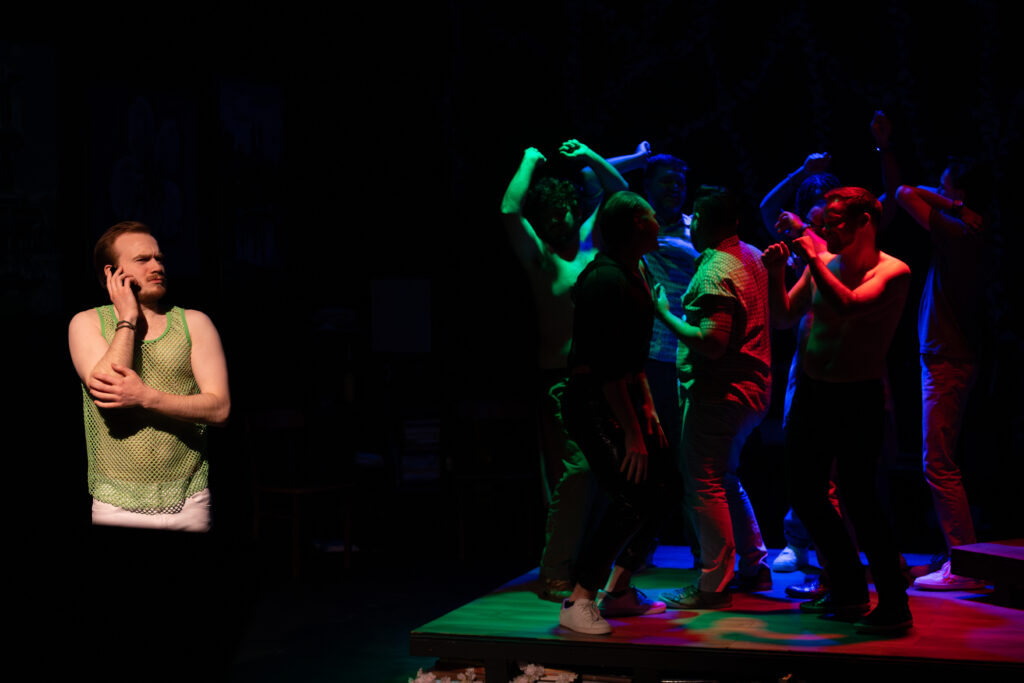
The interconnectedness of the characters is engrossing. Political activist Eric Glass is cultured and likes bringing people together. He’s mindful of making a difference in the world and his heritage. Chris Kernan plays him as committed but easygoing.
His boyfriend, aspiring playwright Toby Darling, is reckless and hedonistic, drawn to the limelight and lives in the moment. Gabriel Paul’s performance bristles with electricity — he’s a hot spring of emotion, giving off Icarus vibes.
They are the main couple, but the secondary pair are two older, longtime companions –
Walter Poole and Henry Wilcox – wealthy gentlemen with social graces and an enviable lifestyle. Jon Hey as the capitalist billionaire Henry and Moore, as Walter, the caretaker/partner, ingratiate themselves as learned men of money and manners.
In another dual role, a captivating Tyson Cole is Adam, a flirtatious and adventurous rich kid who disrupts Eric and Toby’s lives.
For all of Toby’s faux bravado, there is an undercurrent of turbulence and mystery, particularly when Toby is drawn to a street hustler, Leo, also played by Cole. Paul’s intense Toby, as troubled as he is, driven by fame and his libido, is a remarkable achievement in complexity.
Cole superbly manages to play both his roles surreptitiously, distinguishing them in subtle ways. In his Prague monologue, he shows exceptional bravery.
Lopez has created a circle of friends that feels like a warm cocoon, in a way that Mart Crawley’s play “The Boys in the Band” couldn’t in 1968, or wasn’t, in its 2018 revival. They are a Greek chorus, not unlike Bobby’s married friends in the Sondheim musical “Company.”
It’s that dichotomy – outside in a not-so-kind world, and inside their sanctuary that is contrasted so sharply.
Through overlapping dialogue, the actors establish characters and their place in Eric and Toby’s orbit, while Kernan anchors this landscape. Eric has fostered a supportive environment, and now his life is topsy-turvy in both unexpected and anticipated ways.
He traverses the slab stage to center it as his family homestead, and then deals with all the aggravations of ‘being.’
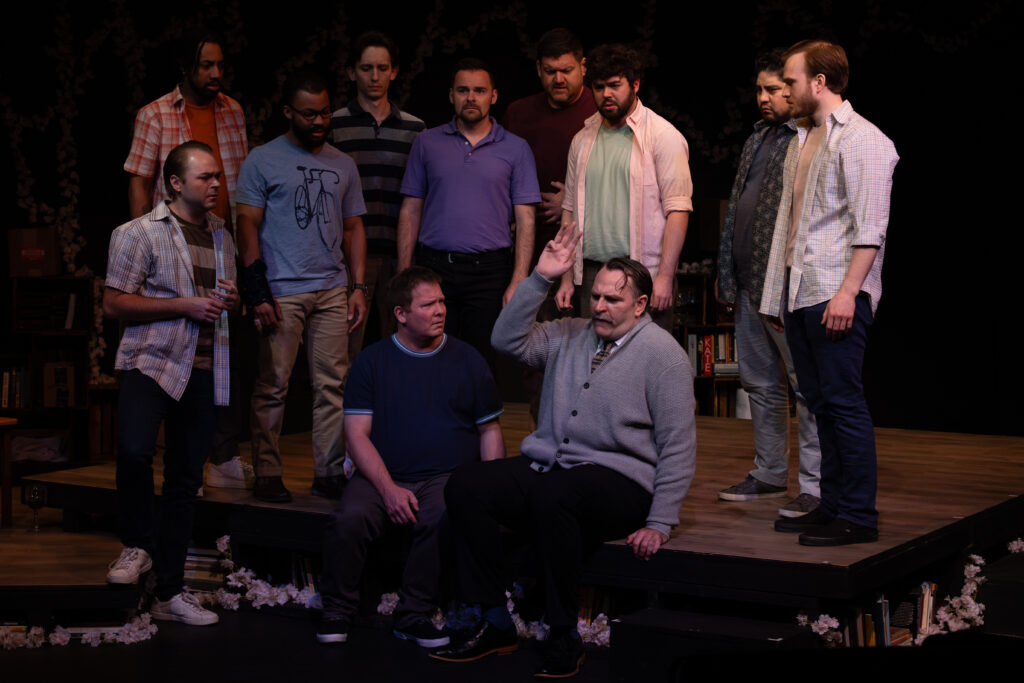
A sweet friendship between Walter and Eric develops, and their conversations are lovely reminders of the people we meet on our journey, and how they influence our thoughts and deeds.
Howards End was the name of a country house in the novel, and a similar property is prominent in this play. It takes on different emotional and sentimental meanings, which is another interesting aspect, and best not be spoiled in a review. Its impact is earned in ending Part I.
Peirick’s scenic design expands on the blossoms of a significant cherry tree, and he has placed artwork based on several photos he took during his NYC travels on the walls, pointedly referencing the Bethesda Fountain at Central Park.
One of my favorite flavors of this show is that New York City is also a character, for it’s as much a love letter to the island as it is a contemplation on the big picture.
Lopez’s dialogue reminds one of NYC’s lure, of its magical quality as the center of the universe, its unparalleled cultural offerings, and its encapsulation of hopes and dreams.
“Every summer, waves of college graduates wash up on its shores to begin the struggle toward success and achievement,” one character says, and as the mother of two sons who did just that, it resonated.
Of course, people will compare this to the landmark “Angels in America: A Gay Fantasia on National Themes,” whose two parts “Millennium Approaches” and “Perestroika” opened on Broadway in 1993. After all, its themes are metaphorical and symbolic as it explored AIDS and homosexuality in the 1980s.
“The Normal Heart” by Larry Kramer is another touchstones – addressing the rise of the HIV/AIDS epidemic in New York City between 1981-1984.
These bellwethers inform and add emotional depth to this exercise, for advocacy isn’t confined to the past, a crucial message.
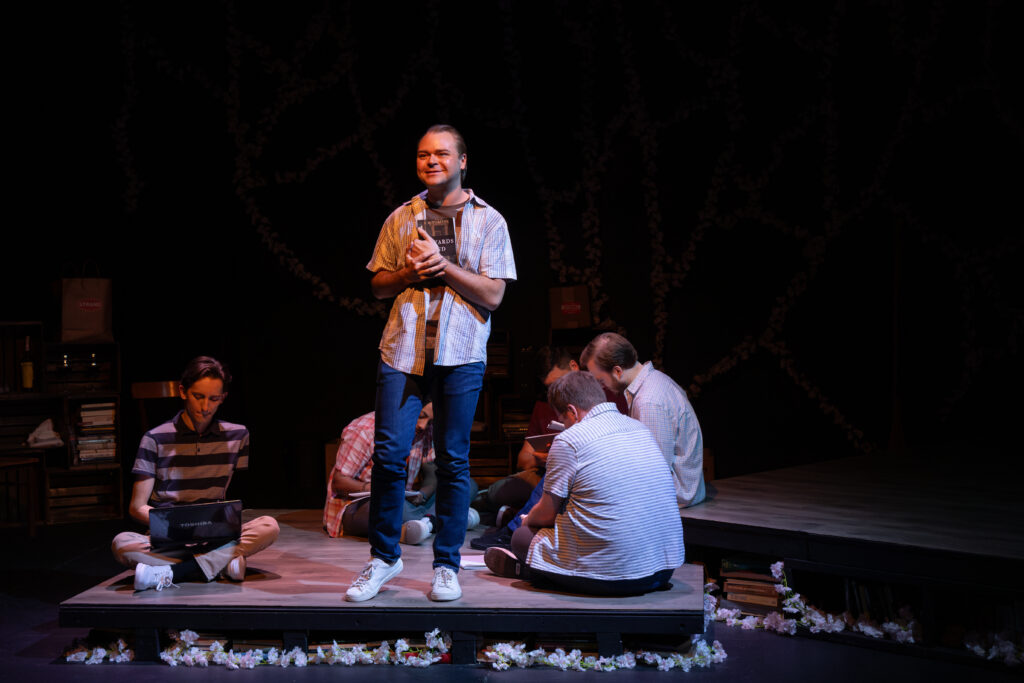
Warning to the audience: Because part of the show takes place in 2016 with social liberals re-enacting election night shock (and for some, horror), that could conjure up some “things.”
Depictions of relationships include frank dialogue and stylized moves for sexual encounters. Adam’s lengthy explicit monologue about a euphoric erotic experience in a gay bathhouse in Prague leads to a terrifying realization of the danger of unprotected sex, and immediate action with PrEP (pre-exposure prophylaxis, medicine taken to prevent HIV).
The supporting players are lively and animated, and transform into whatever they are tasked with, which adds to the show’s unique appeal. For instance, Kevin O’Brien shifts into two parts as one of Henry’s spoiled entitled sons and Eric’s fiery progressive activist boss Jasper.
Kelvin Urday and Nic Tayborn are funny as an anxious singular-focused couple expecting a baby through a surrogate. Jacob Schmidt and Sean Seifert are young Walter and Henry. Stephen Henley is the other spoiled entitled son of Henry. Donald Kidd is Tristan and Margery Handy is Margaret, and they both factor into Part 2.
While the subject matter is serious, levity is present, including a whole discussion on whether camp is necessary as an ostentatious example of gay-ness.
This massive undertaking has involved the outstanding skill sets of many local technicians – lighting designer Tony Anselmo, sound designer Jacob Baxley, technical director Kevin Sallwasser, assistant director Dani Mann, stage manager Rachel Downing, production manager Sarah Baucom and dialect coach Mark Kelley – and their accomplishments are noteworthy.
Part I is an extraordinary piece of theatre, enhanced by its fully alive cast and the creative team’s commitment to telling truths in this special way. “Only connect” is a good motto to leave a theater with, where you just saw brilliance shine.
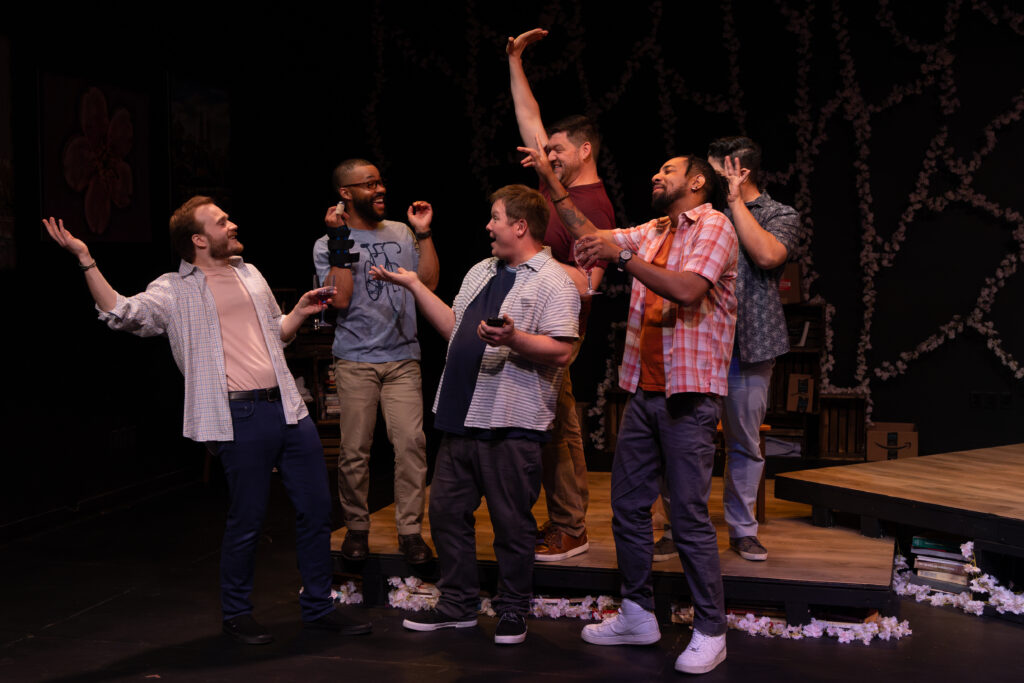
This production is for mature audiences. May contain mature themes, language, nudity, sexuality, violence, satire and/or progressive ideas.
Tesseract Theatre Company presents “The Inheritance, Parts I and 2” April 26 – May 5 at the Marcelle Theatre, 3310 Samuel Shepard Drive. Part 1 is presented Friday and Saturday, April 26 and 27, at 7:30 p.m., with a Sunday matinee at 2 p.m. April 28. Part 2 is presented Thursday and Friday, May 2 and 3, at 7:30 p.m., with a Sunday matinee at 2 p.m. on May 5. Both Parts 1 and 2 are presented on Saturday, May 4, with Part 1 at 2 p.m. and Part 2 at 7: 30 p.m.
For tickets, visit: https://www.metrotix.com/events/detail/the-tesseract-theatre-company-the-inheritance

Lynn (Zipfel) Venhaus has had a continuous byline in St. Louis metro region publications since 1978. She writes features and news for Belleville News-Democrat and contributes to St. Louis magazine and other publications.
She is a Rotten Tomatoes-approved film critic, currently reviews films for Webster-Kirkwood Times and KTRS Radio, covers entertainment for PopLifeSTL.com and co-hosts podcast PopLifeSTL.com…Presents.
She is a member of Critics Choice Association, where she serves on the women’s and marketing committees; Alliance of Women Film Journalists; and on the board of the St. Louis Film Critics Association. She is a founding and board member of the St. Louis Theater Circle.
She is retired from teaching journalism/media as an adjunct college instructor.

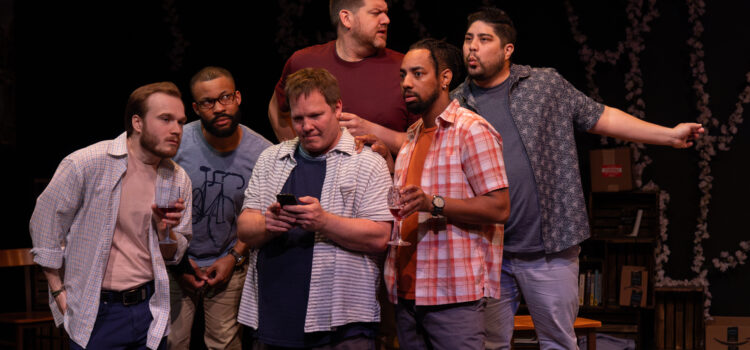

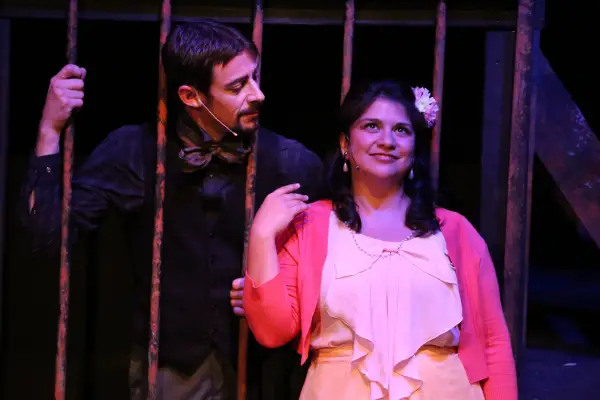
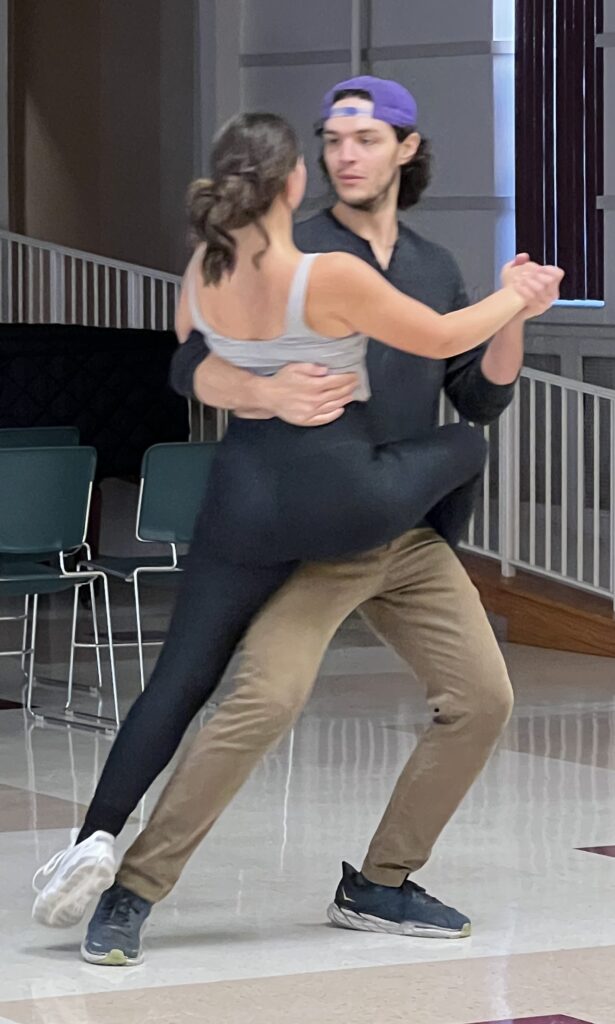
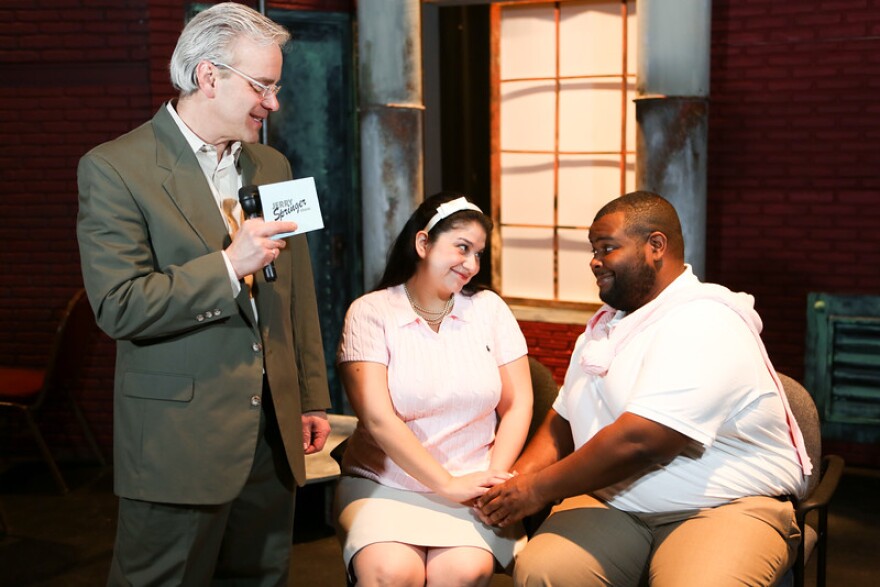
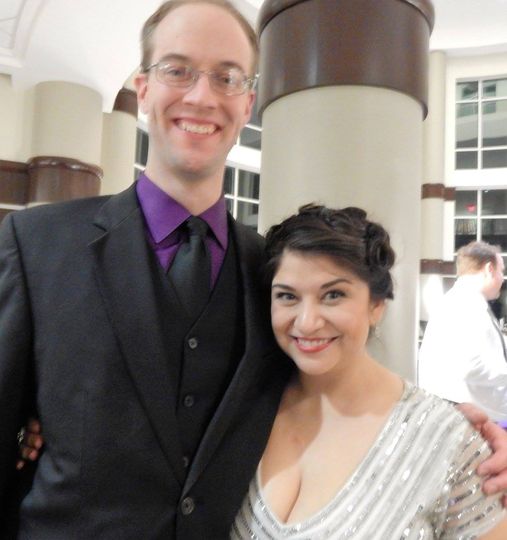
 But you know, it really sucked because I guess I thought we all learned something.
But you know, it really sucked because I guess I thought we all learned something. 